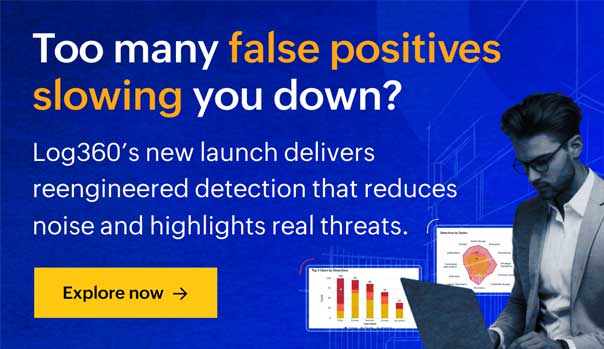As the cybersecurity landscape continues to expand and get more sophisticated, it has become necessary for organizations to stay abreast of the latest trends. Many organizations prefer to outsource their security to managed security service providers (MSSPs) to leverage the MSSPs' expertise in the domain.
While this might sound beneficial for MSSPs, it also adds an additional pressure to stay updated by choosing the best technology available. Identifying the best solution that can be tailored to meet client-specific requirements is essential to improving an MSSP's effectiveness.
- Planning the infrastructure required for the services: It is pivotal to prepare for the infrastructural requirements for the nature of the services offered before investing in a technology. MSSPs must have a clear understanding of whether they're going to adopt a cloud-first strategy or go for a hybrid model that can cater to the requirements of clients of varied sizes.
- Understanding the requirements of the clients: Every client has different requirements, and it is necessary to have an understanding of the target market and requirements before finalizing a technology. For instance, smaller clients may prefer on-premises solutions, whereas enterprise customers may look for cloud-based offerings.
- Scalability: As their businesses grow, MSSPs must be able to scale their offerings to accommodate more clients. Furthermore, as clients expand their businesses, MSSPs must also be in a position to provide continued services without downtime or data loss. For this, having a scalable, flexible solution is vital.
- End-to-end threat coverage: As MSSPs handle the security of businesses, it is important to provide end-to-end threat coverage. Detecting and defending against threats proactively can help secure clients' networks and improve the reputation of the MSSPs. Additionally, with organizations adopting hybrid strategies, MSSPs must select a tool that can monitor different platforms and provide a comprehensive view of clients' security postures.
- Integration capabilities: When they handle large clients, it is important for MSSPs to have integration capabilities in their solutions to reduce the number of tools they must shuffle between. Furthermore, different clients may use different tools for their operations, and MSSPs must be able to seamlessly analyze data from those tools as well. For this, integration capabilities are crucial.
- Compliance reporting capabilities: Clients' compliance requirements vary based on the nature of the business and its geolocation. Identifying the right tool that can provide out-of-the-box support for major compliance standards like the GDPR, the PCI DSS, and HIPAA helps MSSPs meet the compliance requirements of their clients. Additionally, there should be options to create custom compliance reports and schedule the reports based on the clients' auditing requirements.
- Vendor reputation and support: Identifying the right technological partner plays a huge role in the success of an MSSP. Assessing vendors based on their track record, reputation, and commitment to support helps MSSPs identify the right vendor that fits their requirements. It's also important to evaluate vendors' responsiveness, expertise, and willingness to collaborate closely with MSSPs to address unique client requirements.
In short, selecting the right technology is paramount for MSSPs to deliver effective, comprehensive security services to their clients. It involves careful consideration based on the requirements of the MSSP's business and the requirements of the clients. In order to stay ahead of the cybersecurity curve, MSSPs must keep themselves updated on the recent trends and attack patterns and equip themselves with latest technologies that help detect complex threats, defend against them, and safeguard clients' environments.


